The Best Thing I Read This Week: Wolverine & Kitty Pryde #1
Chris Claremont is back, and he isn't subtle about it. But he never was.
They really don’t make ‘em like Chris Claremont anymore.
But no, seriously, they really don’t. In fact, I question whether Claremont, were he just starting out, could even land a job in today’s comics industry. His signature loquaciousness—where character feelings and motivations are said out loud, and action scenes are narrated down to every punch—has fallen out of favor in an industry that prizes action and mood over lengthy dialogue. One Claremont soliloquy contains more wordage than do many comics on the stands today.
I love it, though, especially in Wolverine & Kitty Pryde #1, which drips nostalgia from every page. Claremont’s writing feels like a comic book should: Really freakin’ fun to read. I mean, sometimes you just want a character to speak to you—not through flashy spreads or the moody shadows haunting their face, but in their own voice, saying what they feel is necessary for you to know (and sometimes saying even more by what they leave out.)
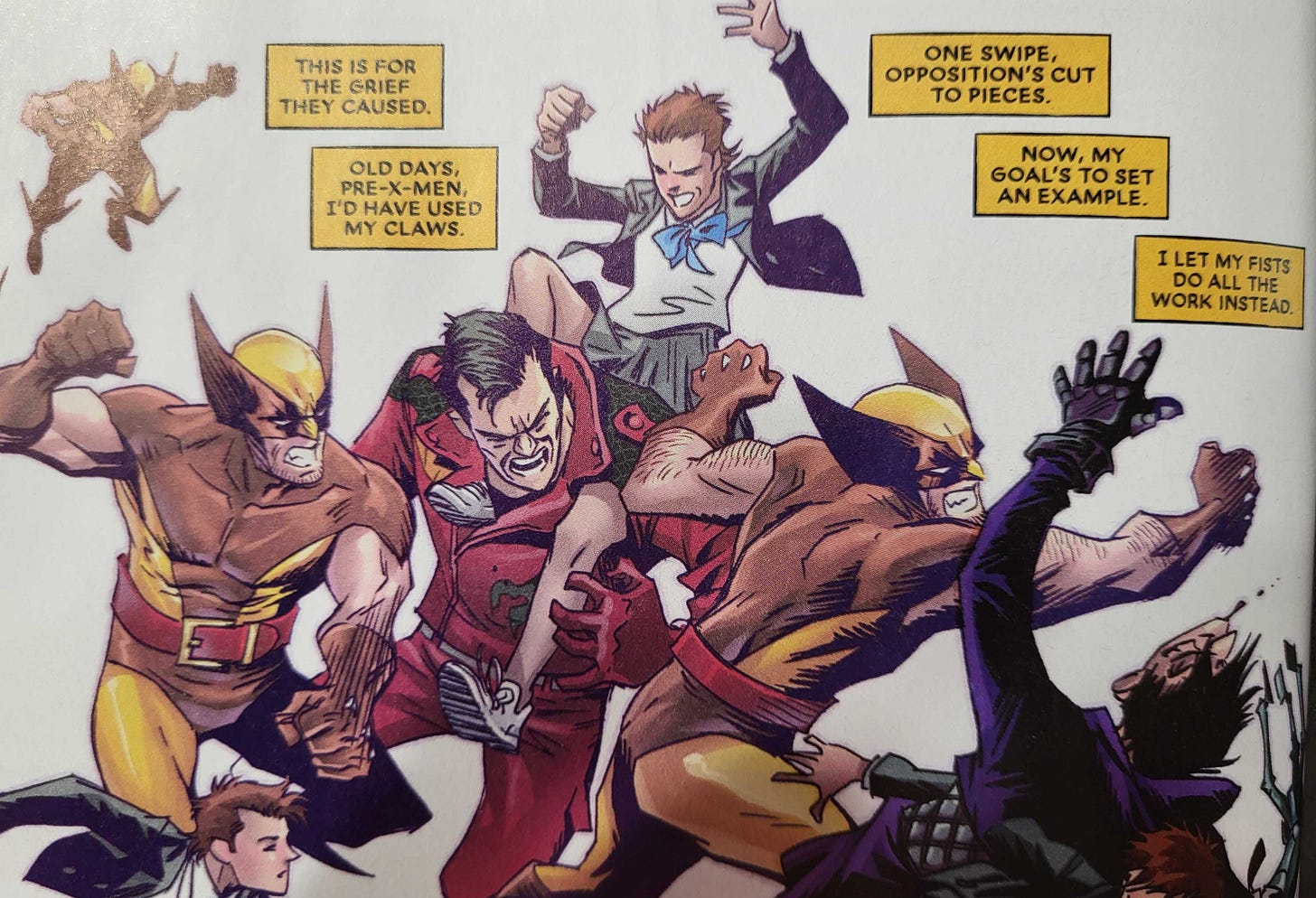
That said, some of you might be wondering, “Why this book now?” As in: It’s been thirty-odd years since the original Kitty Pryde & Wolverine mini-series first published—why on earth is it necessary to revisit the story now?
But I get it. Oh man, do I get it. He’s talking me. To us. It’s a message from Chris Claremont to all the Kitty Prydes out there: Learn how to fight—now—because the fight has found you. The fight will always find you.
Her Last Name Is “Pryde,” After All
Chris Claremont is Jewish. Like, super Jewish. In fact, during his childhood, he even lived on a kibbutz in Israel. His Judaism has shaped much of his writing, from the stories the chooses to tell to his interpretations of existing characters, and he thoroughly steeped his Uncanny X-Men run in Jewish mysticism and Israeli history.
It was Claremont who made Magneto a Holocaust survivor, and Claremont who made Jean Grey the Phoenix, an explicit incarnation of Tiferet, the Tree of Life. Claremont’s portrayals of Charles Xavier and Magneto were based on David Ben-Gurion and Menachim Begin, respectively. (For more on this, check out this deeply charming interview with Claremont by a Greek Orthodox priest, held about ten years ago.)
And, of course, Claremont originated the first openly Jewish superhero, naming her—fittingly—Kitty Pryde.
It’s weird now to go back to Claremont’s Uncanny X-Men run, to see Charles having adventures in the Negev, falling in love with an Israeli woman as he helps to heal survivors of (presumably) the War for Independence and the Six-Day War. It’s good weird, but weird all the same. I can’t fathom an American comic today portraying Israel so neutrally, without any hint of antisemitism, condemnation, or moralization. But in Claremont’s X-verse, Israel just is, and little Jewish girls could just grow up to be superheroes, and in retrospect, maybe both ideas were more revolutionary than I appreciated at the time.
I have deep, deep reservations with the modern portrayals of Kitty Pryde, which either minimize her Judaism (the Krakoa era) or present it in a factually wrong and profoundly tone-deaf way (Exceptional X-Men). So I welcome a Jewish superhero being written by a Jew again, especially one who originated the character.
So what story about Kitty Pryde was so important in 2025 that her creator came out of near-retirement to tell it?
Buckle up, because it’s kinda bleak.
How You Choose To Pay Them Back
Wolverine & Kitty Pryde #1 opens right after the events of Kitty Pryde & Wolverine, though you don’t have to read that book to follow along. What you do need to know is that prior to the start of this story, our Kitty—a sweet, sassy teenaged girl—has been the victim of a heinous crime. Kidnapped, brutalized, and enslaved, she was mind-controlled into becoming an assassin and attempting to murder her friend and mentor, Wolverine. And it all happened because of how Kitty was born—with mutant powers.
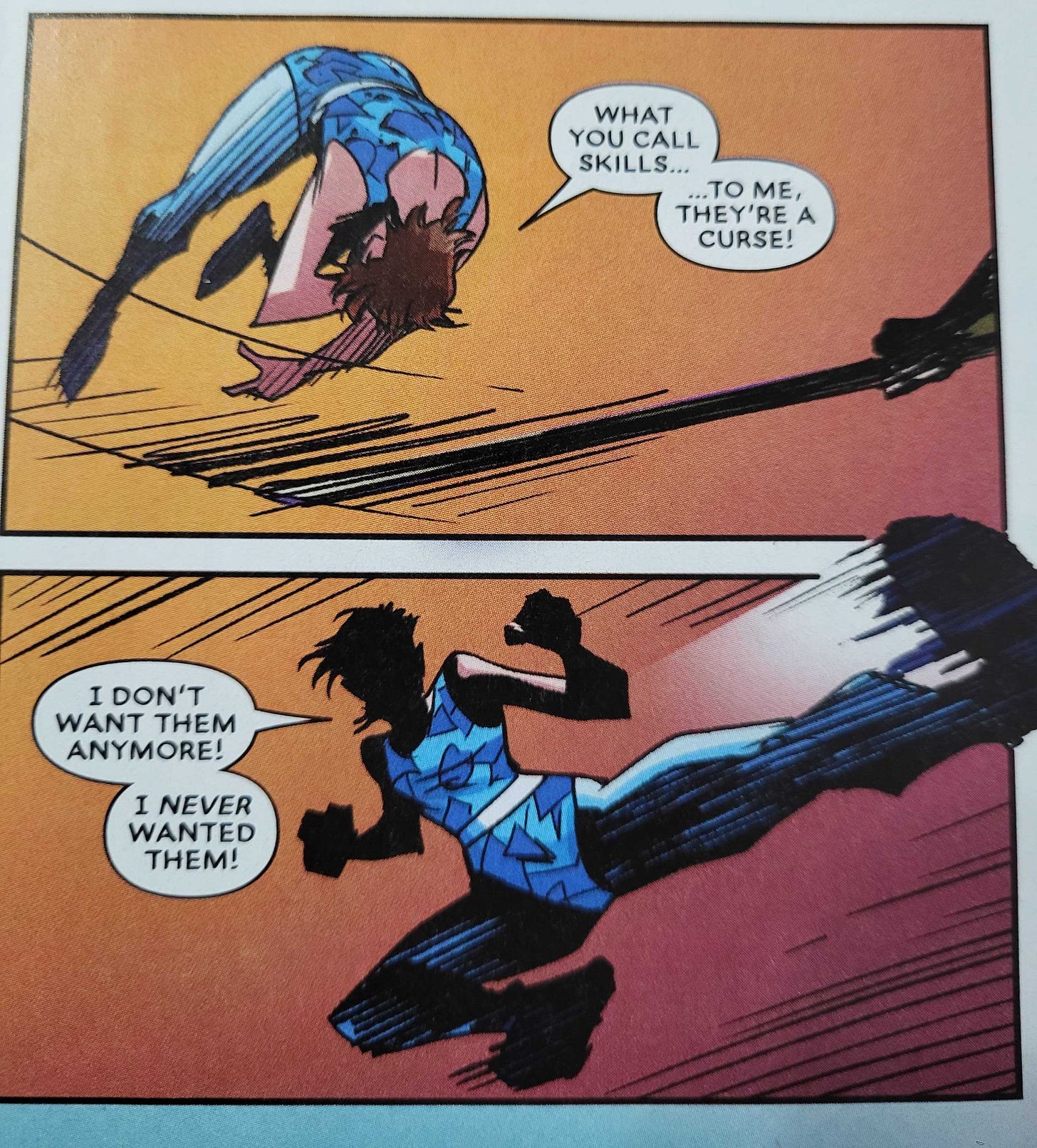
For Jews, it’s the oldest story in the book. We’re no strangers to being outsiders and being targets of violence because of it. In fact, there’s a running joke that every Jewish holiday can be summed up thusly: “They tried to kill us. They failed. Let’s eat.”
But Kitty’s story also takes on new relevance in a post-October 7th world, where every Jew—be they observant or secular, Israeli or diaspora, right-wing or left-wing, rich or poor, Northern or Southern, quiet or loud, assimilated or haredi—lives under a heightened threat of violence. Synagogues are being vandalized. Businesses torched. Jews attacked in the streets. It doesn’t matter how much of a “good Jew” you are. None of us are safe. It’s never been a scarier time to be openly Jewish in America—and that’s to say nothing of Europe, Australia, or even Canada, where synagogues are being firebombed and Jews openly assaulted while the police look the other way.
Like Kitty, we didn’t ask for it. Also like Kitty, our enemies don’t give a shit. She, like all of us, needs to learn how to become a fighter. That means fighting not just the battles you choose to fight, but the battles that come to you. She might resent her special mutant powers, but learning to defend herself is no longer a luxury for Kitty Pryde.
After all, people nearly died to save her. She owes it to them to make their sacrifices not in vain.
So it goes for Jews. October 7th was our wake-up call. In my own community, I’ve got friends who have enrolled their entire families in krav maga, or bought guns and whole-home security cameras. Our synagogues now hold security trainings and self-defense seminars as a matter of course. Even my rabbi, one of the nicest guys I know, now has a collection of knives he uses as fidget toys.
We spent so many years and so much effort proving to the world that they had nothing to fear from us Jews that it backfired—until now many folks think Jews are meek, noodly-armed nebishes who herded themselves into the cattle cars. They’re downright offended when we have the temerity to fight back against those who would destroy us.
But, as Kitty Pryde must learn, Jews are warriors. Hitler-punchers. Masters of magnetism and ninja-beat-down-givers. In every generation they rise to defeat us. In every generation, we must be prepared to fight back. As Yukio suggests, that’s what we owe to the people who died to set us free. As Wolverine knows, that’s how we turn a curse into a blessing:
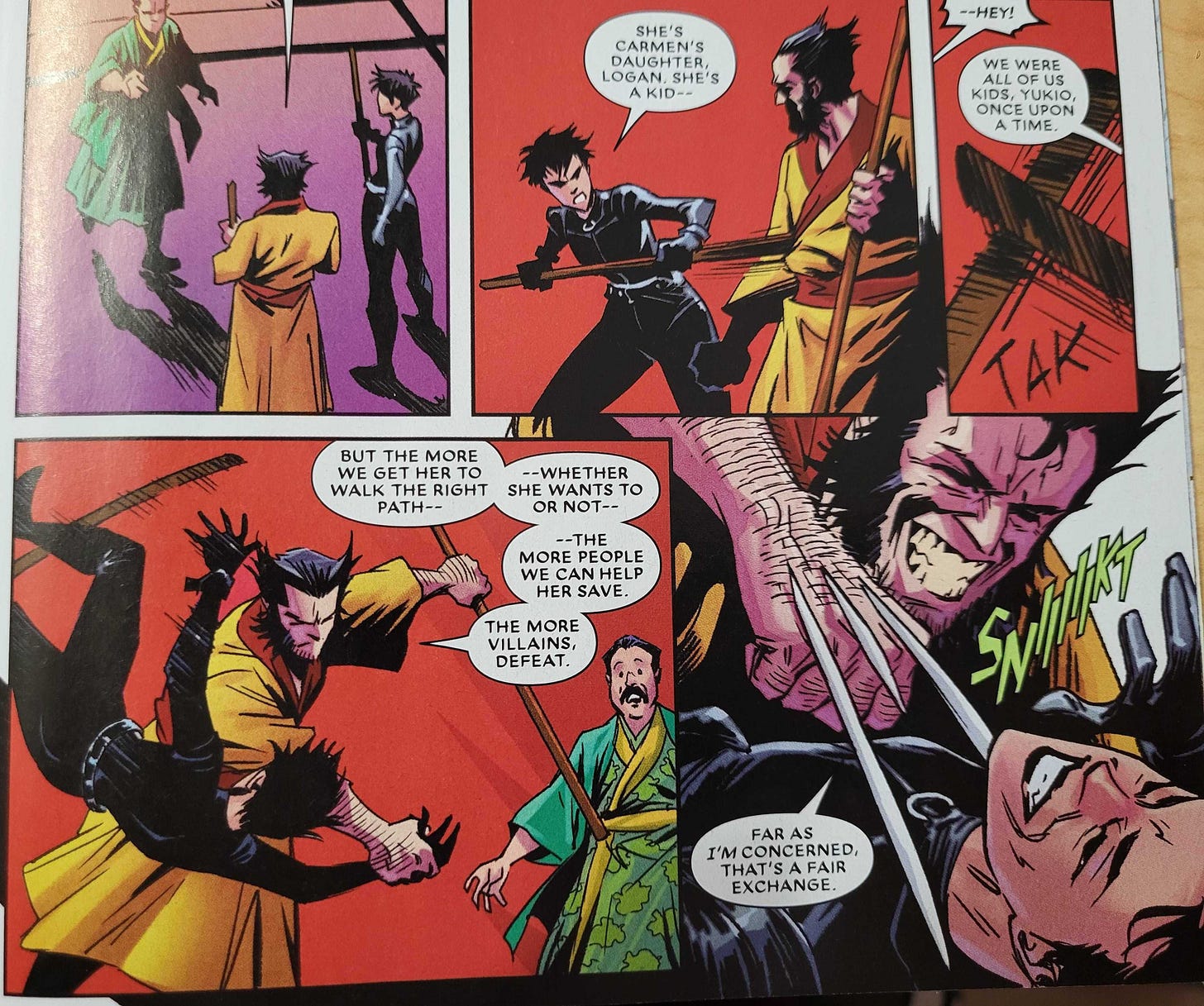
Wolverine & Kitty Pryde #1 exists because all of the Kitty Prydes out there who must learn how to defend themselves in a world that wants to erase their existence. Chris Claremont isn’t subtle about this. Then again, he never is. That’s just not his style. And frankly, I’m glad he’s back to tell this story now. Turns out, it was exactly the story I needed to hear.

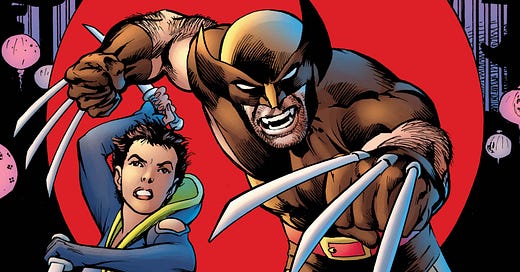



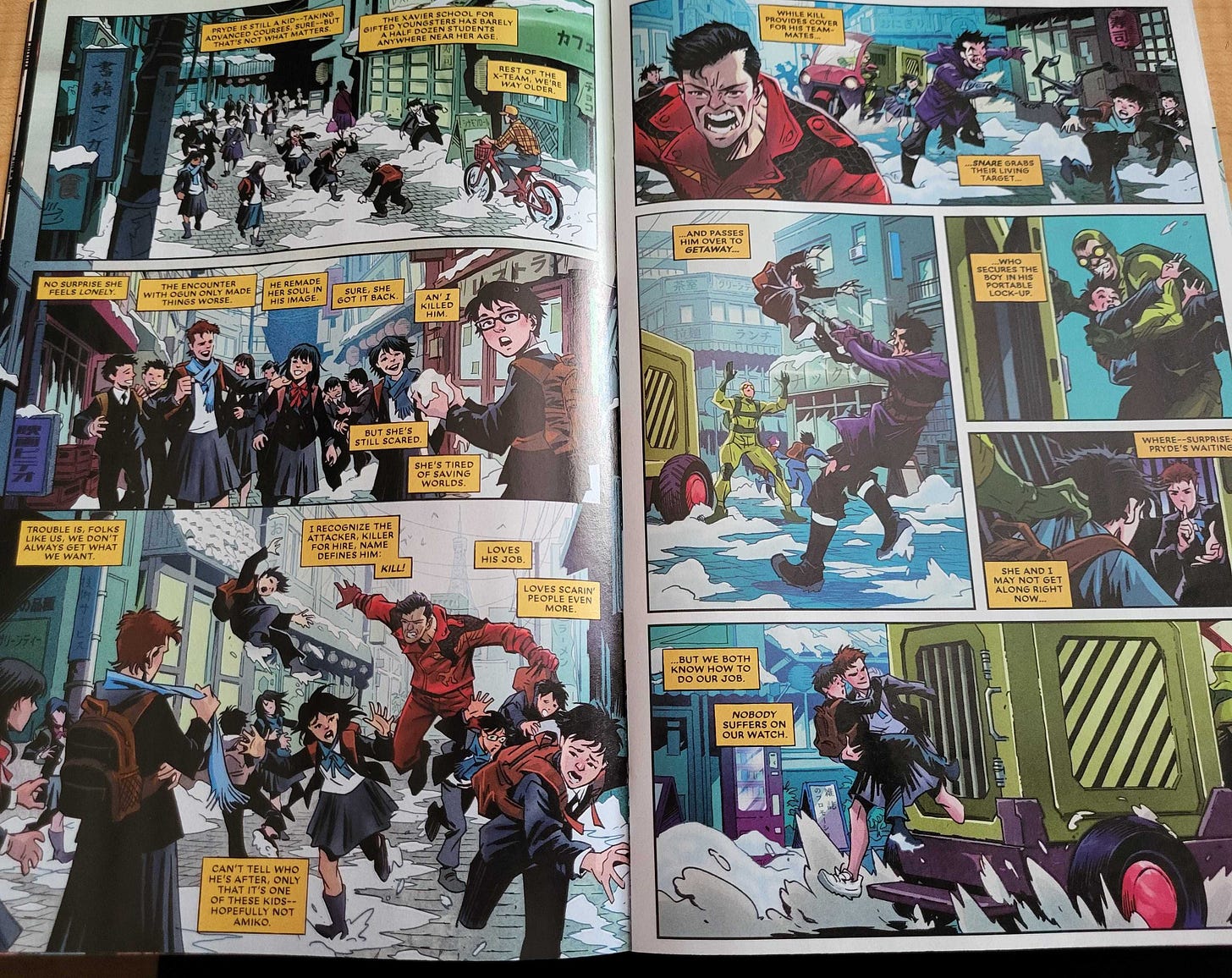
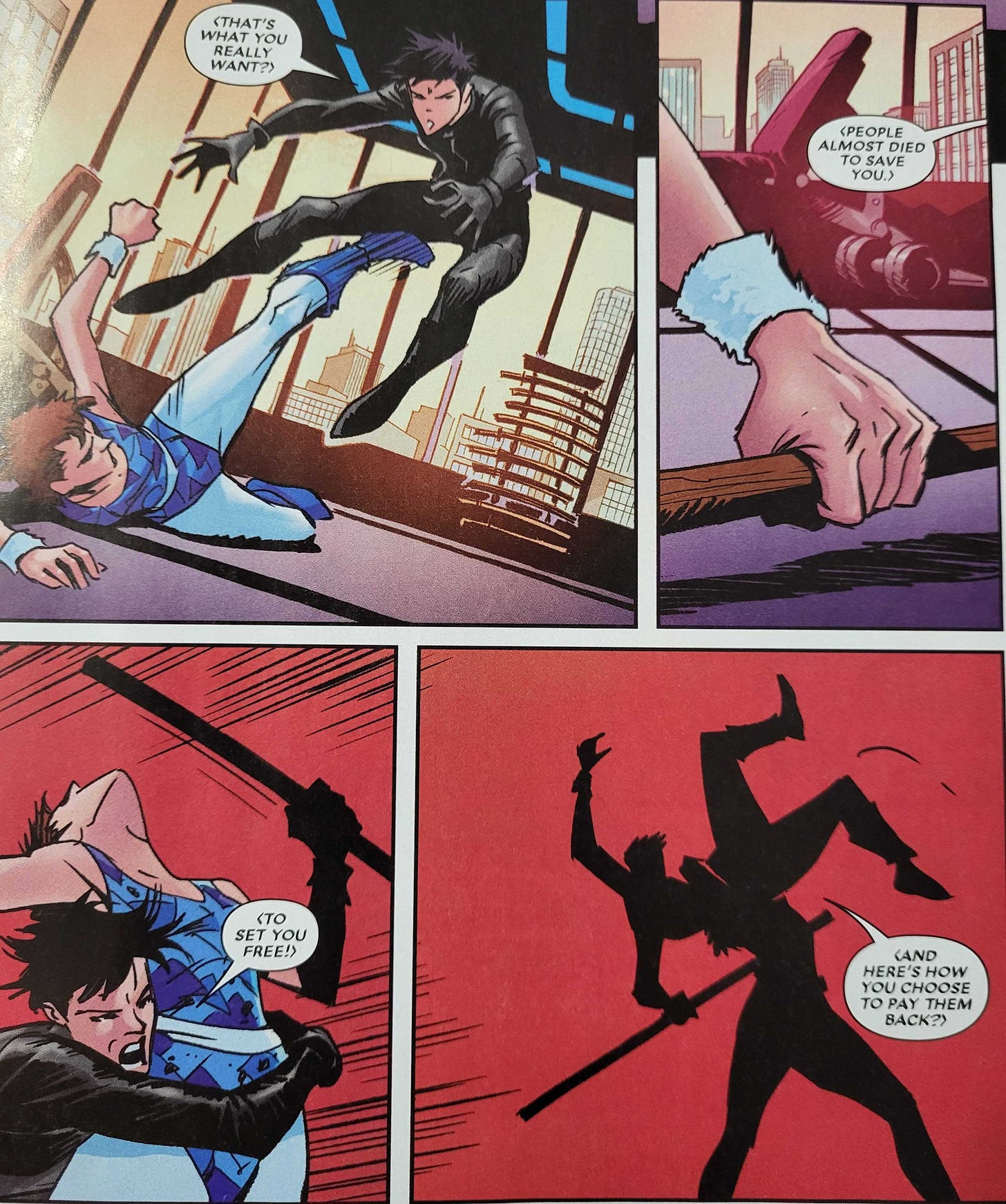
Wow thank you for sharing. I knew that Kitty's Jewish background was intrinsic to her character and I've always seen it that way, but I never saw it in this light until you contextualised it with your own experiences of the community.